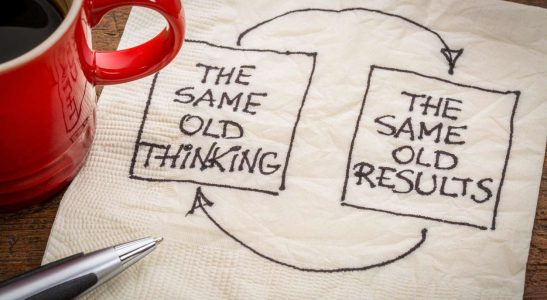There are misguided stereotypes around single life today. We do not have to look far back in history to find the world’s most famous bachelor who defied the single stereotypes people experience today. Crabb Robinson is regarded as excelling in the strengths and skills of single people.
The Victorian Bachelor Who Defied Today’s Single Stereotypes
Living Alone | 4th August 2022 by Bella DePaulo
There are misguided stereotypes around single life today. We do not have to look far back in history to find the world’s most famous bachelor who defied the single stereotypes people experience today. Crabb Robinson is regarded as excelling in the strengths and skills of single people.

That was the conclusion of a very lengthy profile of Henry Crabb Robinson, published in the prestigious Atlantic magazine under the title, “A Successful Bachelor.” Wondering why you haven’t heard anything about this article? Maybe because it appeared 124 years ago, in 1898.
Henry Crabb Robinson may well be one of the most admired lifelong single persons you’ve never heard of. His life and his work are so remarkable that the Queen Mary University of London has been hosting the Henry Crabb Robinson Project since 2007, an archive of his work and of work about him.
Robinson was an “English man of letters” who was a barrister, foreign correspondent for The Times of London, an anti-slavery activist, and an important figure in the founding of the University of London.
As the Project notes, “Robinson was also a prolific letter-writer, journalist, reviewer, literary translator and author of philosophical and political essays.” He was best known, though, for his personal ties with influential literary figures and the extensive diary entries he wrote about them. They included, among many others, William Wordsworth, Samuel Taylor Coleridge, and William Blake.
What interested me most about Robinson was how beautifully he defied stereotypes about single people that continue to plague us to this day.
As Leon H. Vincent, author of the Atlantic article said of him: “…this man had a brilliant career. He lived long…he had good health…Life tasted sweet to him up to the last day…His wholesome curiosity about good books and good people never failed.” He had a “gift for friendship…” And “…there were few things worth knowing of which he did not know something, and few people worth cultivating whom he had not cultivated.”
Henry Crabb Robinson exemplifies the best of single people and single life. The standard I am using is not my personal opinion but evidence from stacks of studies from the twenty-first and late twentieth centuries.
Bachelor Life
Social ties
Single people, we now know, are not the isolated ones. Contemporary singles are more likely than their married counterparts to do what it takes to develop and maintain their ties with other important people in their lives, such as friends, relatives, neighbours, and colleagues.
So it was with Henry Crabb Robinson. “According to current estimates, the names of some 6,000 people, from all walks of life and many different countries, may ultimately be found across his writings. John Wesley, William Hazlitt, Johann Wolfgang von Goethe, Madame de Staël, Charles and Mary Lamb, William Godwin, Mary Hays, Samuel Taylor Coleridge, and William Wordsworth are only a small selection of the more illustrious figures whom Robinson met or knew personally.”
“In later years,” Vincent said, “Crabb Robinson regularly used to spend his Christmas holidays at Rydal Mount. His presence was regarded as essential to the sober merrymaking of the household there. They had a family saying, “No Crabb, no Christmas.” (The photo at the top of this story is of an autumnal waterfall Rydal Mount.)
Friendships
When people blithely dismiss single people as “not having anyone” just because they don’t have a spouse, they are showing their ignorance of the role that friendship can play in their lives. Single people often have friendships that are plentiful and profoundly significant. They invest more in them and get more out of them.
The introduction to the Henry Crabb Robinson Project noted that “For much of the nineteenth century, Henry Crabb Robinson (1775–1867) was a ubiquitous figure in London literary life. “Sociable Sunday breakfasts at his home in Russell Square were famous… He would often take a very long walk to call on an old friend…”
So cherished were Robinson’s friends that when he died, the names of eight of them were inscribed on his tomb. They included Blake, Coleridge, Goethe, and Wordsworth.
Meaningful pursuits
People who stay single are more likely to experience personal growth. They also seem especially inclined to pursue their passions. The Project described Robinson as “an avid traveller, indefatigable walker, and ardent socializer.”
For example, “he toured through the West Country and Wales in 1799, crossed Germany on foot with Christian Brentano in 1802, and rambled with Wordsworth in Switzerland in 1820 and in Italy as late as 1837, to name only a few.”
He was also passionate about the literary world. He was, for instance, “an early and discriminating admirer” of Wordsworth. “He championed Wordsworth’s poetry at a time when champions were few and not influential.”
How to be a successful bachelor: Beliefs from the 19th century
“There have been successful bachelors,” the article in the Atlantic proclaimed in 1898. Perhaps, at the time, the possibility was in doubt. The author, Leon H. Vincent, declared that no bachelor was more successful than Henry Crabb Robinson, the person he profiled in his article.
The Atlantic article also offered more sweeping statements about bachelors. For example:
“Bachelorhood is a normal condition up to a certain period in a man’s life, and after that, it is abnormal. He who elects to remain unmarried elects to become queer.”
This could also pass as a twenty-first-century sentiment. Singlehood has come to be expected during the early adult years, though even then, single people are judged more harshly than married ones. Later on, the stigma of living single grows, even though there is evidence that single people do better and better with age.
Considering the year — 1898 — I think Vincent was using “queer” to mean odd rather than gay. Today, the man (or woman) who stays single beyond the time when marriage is expected is still at risk of being regarded as a bit odd.
The stereotype that lifelong single people are gay still seems to have some staying power, though probably less so than it once did. The people staying single who actually are gay are stereotyped, too.
This next observation surprised me:
“Almost any man can become a fairly respectable husband; but to be a successful bachelor implies unusual gifts.”
I think it counts as a compliment to bachelors.
Here’s a commentary on successful bachelorhood that I did not see coming. (Miss Fenwick is from Wordsworth.)
“Miss Fenwick was of the opinion that a man could not preserve kindliness and courtesy in the bachelor state unless he had something the matter with him; that is, unless he was the victim of some misfortune which kept him “humble, grateful, and loving.”
In the case of Robinson, Miss Fenwick believed it was his ugliness “that preserved his benevolence.” Nice!
Aside from that snide remark about his looks, the long, thoughtful profile of Henry Crabb Robinson was entirely laudatory. Yet, at the very top of the article, this quote was pulled out and highlighted:
“More interest should be taken in bachelors. Their need is greater, and their condition really deplorable. It is a misfortune to be unhappily married, but it comes near to being a disgrace not to be married at all.”
I thought about this for a while, wondering whether it could have been meant ironically. In 2022, I hope, it would be. As a set-up for the admiring portrait that would follow, it would be delicious. But I don’t think it was. My best guess is that the author, expressing the sentiments of the time, really did think that bachelorhood was deplorable and disgraceful. Robinson, he was suggesting, was the exception.
Share this post:
Hear from Solo Living now and then by signing up to our mailing list




















